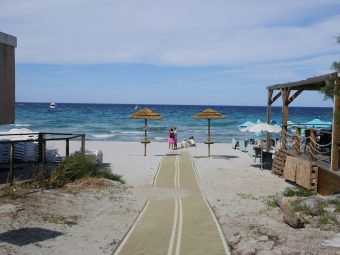
On Corsica, an island with over 350,000 inhabitants, an ambitious energy project promises to redefine the island’s energy dynamics and significantly reduce CO2 emissions. The French state-owned company EDF is launching the Ricanto bioenergy plant, a cutting-edge facility that will convert liquid biomass into electricity, setting a new standard for sustainable energy in off-grid regions.
As an island not connected to the continental power grid, Corsica faces limited options for energy exchange with the mainland and the rest of Europe. The challenge lies in locally producing sufficient energy to meet the island’s needs, especially during the tourist season when this popular destination sees a surge in demand. Currently, Corsica relies heavily on fossil fuels for electricity generation, leading to high carbon dioxide emissions.
More:
- Brazil’s Achievements in Renewable Energy Surpass Global Average
- COP29: Climate Financing Set as a Priority
- Mechanisms to Combat Energy Price Volatility – France’s Plan
Technology and Innovations in the Project
The Ricanto bioenergy plant will be powered by eight state-of-the-art engines with a total capacity of 130 megawatts – enough to replace the outdated Vazzio oil-fired power plant, marking a transition from fossil fuels to renewable energy sources. The chosen fuel, liquid biomass, is derived from rapeseed or sunflower oil – resources that are sustainable and locally sourced.
The construction of the Ricanto bioenergy plant represents an investment of approximately €800 million. EDF estimates that between 250 and 500 jobs will be created during the three-year construction phase.
Additionally, carbon dioxide emissions are expected to decrease by 65 percent compared to current levels from the oil-fired plant being replaced. The Ricanto plant will generate around 20 percent of Corsica’s annual electricity needs, significantly contributing to energy independence, according to EDF’s website.
The Ricanto bioenergy plant is scheduled to begin phased operations by mid-2027.
Energy portal



